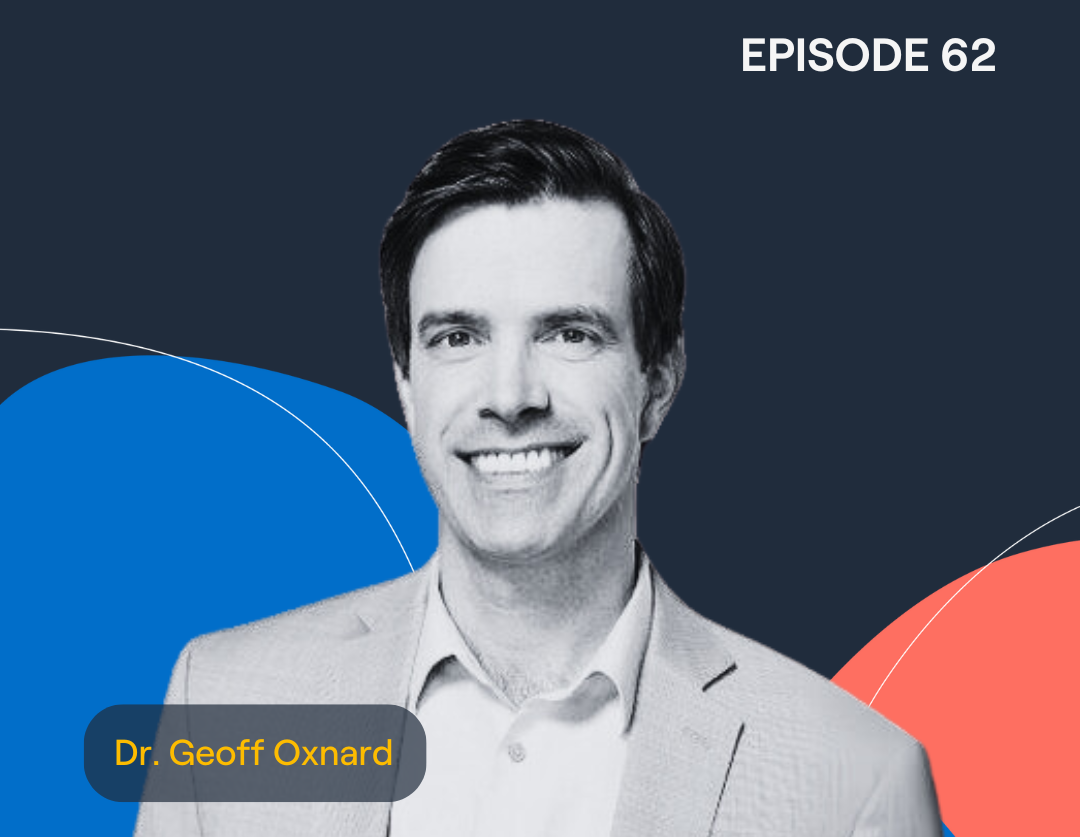In this episode, Dr. Geoff Oxnard, a thoracic oncologist, discusses his career journey into oncology and shares insights from his experience treating lung cancer patients and conducting research. He emphasizes the increasing role of precision medicine and genomic and biomarker testing in guiding treatment decisions, providing examples of how identifying specific mutations can lead to dramatically better outcomes with targeted therapies. Dr. Oxnard also highlights the changing narrative surrounding lung cancer, with emerging stories of remarkable responses and newfound optimism as treatments improve. He provides perspective on navigating clinical trials, especially for rare genomic subtypes, and shares his motivations for transitioning from academia to the pharmaceutical industry, driven by a desire to have a larger impact on drug development and patient care.
About our guest
Geoff Oxnard, M.D., is the Vice President, Clinical Development, Global Head, Thoracic Cancer at Loxo@Lilly. Previously, Dr. Oxnard served as a thoracic oncologist and clinical-translational researcher at Dana Farber Cancer Institute and was also an Associate Professor of Medicine at Harvard Medical School. Dr. Oxnard received his BA in chemistry from Harvard University and his MD from the University of Chicago-Pritzker School of Medicine. He completed his residency in internal medicine at Massachusetts General Hospital and completed his fellowship in medical oncology at Memorial Sloan-Kettering Cancer Center. As an experienced oncologist, Dr. Oxnard is passionate about raising awareness of thoracic cancer and helping to make an impact on cancer care.
Key Moments
8 minutes:
“It starts with precision therapy, if I may, right? Once you have defined a specific molecular subtype, you've tried to sort of sift through the randomness of cancer care to find a group of patients who are going to behave in a similar way. Let's go into that for a moment, if I may, OK? EGFR mutations. If you give an EGFR inhibitor in the original studies to a bunch of patients on average with lung cancer, they live a couple months longer, but 10 % of those patients have fantastical responses that can last for a year or two or more. And so when you are a lung cancer patient, which are you looking for, by the way, to live on average two months longer or to have a fantastical response that can work for years? And of course, people are looking to be that outlier.”
28 minutes:
“We are expecting more from our lung cancer therapies and some patients are gaining dramatic benefit. And we even talk in hushed circles about using “the C word”, the cure word for some lung cancer patients who've had dramatic responses. But what it means is now when a patient comes into me and I find an EGFR mutation and I know they're going to be able to live on a pill for a number of years and then need chemo, I'm almost not satisfied. I want even more. And so as our therapies get better, we elevate our expectations and we are chasing, I would say, the good outcomes that we are starting to see in HER2 positive breast cancer now with our lung cancer patients.” And so our targeted therapies are going to early disease, our immunotherapies are going to early disease, and we are being more aggressive in how we treat lung cancer. And the question I think only is how do we do it in a way to make sure everyone participates in this progress and we don't leave anyone out.”
44 minutes:
“I didn't go from full clinical care to industry, right? In fact, my experience at Dana-Farber was slowly less clinic, more research. And I was always developing ideas and taking them to industry and saying, ‘you know, you should really do this next.’ And they wouldn't always listen to me. And I was like, ‘wait a second, why aren't they listening to me?’ And I had a certain moment, I was like, ‘wait, if I want to change how we develop drugs, how we develop diagnostics, I have to just go join them.’ And I'm so blessed to be able to do that in a way that still includes patient care.”
Visit the Manta Cares website
YouTube Tags: cancer biomarkers, genes, proteins, genetic testing, biomarker testing, germline testing, lung cancer, treatment decisions, biomarkers, cancer, personalized treatment, delays, turnaround time, chemotherapy, targeted therapy, patient advocacy
Disclaimer: This podcast blog is for general informational purposes only and does not constitute the practice of medicine, nursing or other professional health care services, including the giving of medical advice, and no doctor/patient relationship is formed. The use of information on this podcast blog or materials linked from this podcast blog is at the user's own risk. The content of this podcast blog is not intended to be a substitute for professional medical advice, diagnosis, or treatment. Users should not disregard, or delay in obtaining, medical advice for any medical condition they may have, and should seek the assistance of their health care professionals for any such conditions.
Join us to get the latest episode
Watch Episode
Recent Podcasts

Sami Mansfield on Exercise as Cancer Treatment and Building Strength Through the Side Effects

Dr. Laila Agrawal on Sex After Breast Cancer and the Conversations Patients Aren’t Getting

Leslie Ferris Yerger on Dense Breasts, Missed Screening, and Why “All Clear” Didn’t Mean Safe

